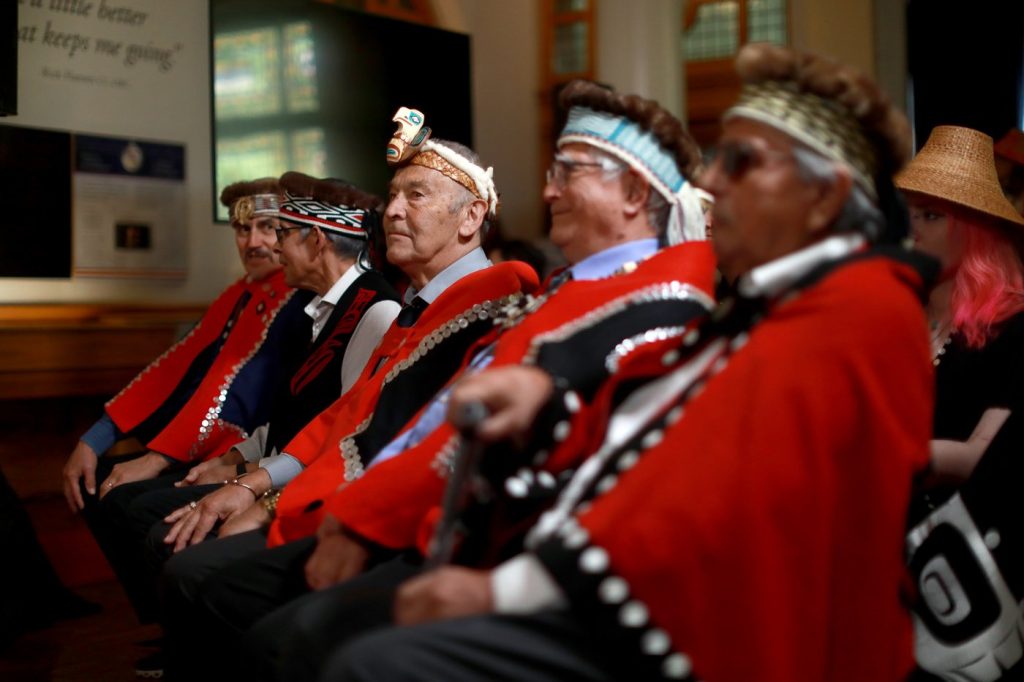The federal government of Canada has taken a historic step by officially recognizing Aboriginal title over the Haida Gwaii archipelago, located off the northern coast of British Columbia, through a groundbreaking agreement with the Haida First Nation. This milestone was announced by Crown-Indigenous Relations Minister Gary Anandasangaree, who emphasized the significance of this achievement, describing it as a moment that will reset and enhance the relationship between the governments and the Haida people.
The newly established Big Tide Haida Title Lands Agreement asserts that the Haida possess Aboriginal title over all lands on the islands, along with beds of freshwater bodies and foreshores to the low-tide mark. This transfer of the underlying title effectively grants the Haida an inherent legal right to the land, which could influence how courts rule on future disputes related to land ownership and use.
Anandasangaree highlighted that this agreement initiates a five-year transition period that will necessitate new legislation to finalize the practical implications of the agreement. He reassured that both the federal government and the Haida Nation will collaborate respectfully and cooperatively on matters concerning Haida Gwaii to ensure that the process is "orderly and incremental," ultimately providing stability for residents and other interests involved.
This agreement follows a similar recognition from the British Columbia government in April 2024, marking the conclusion of a protracted struggle that has lasted four decades. The conflict initially began with a logging blockade, which escalated into an intense legal battle involving grievances against logging practices on Haida lands. The Council of the Haida Nation launched legal action against both Canada and the provincial government over two decades ago, seeking a formal declaration of Aboriginal title.
The ministry reported that discussions among the involved parties commenced in 2021, focusing on resolving issues that might otherwise have required litigation. To facilitate this process, Canada allocated $59 million to the Haida Nation as part of an "advance capital transfer" aimed at enhancing the nation's governance capacity.
About 15 percent of Haida Gwaii is currently managed or owned by the federal government, which includes designated areas such as a national park and a Haida heritage site, while an additional 2 percent is owned by various other parties. The title agreement is expected to provide a framework for cooperation between the Haida First Nation and the province that emphasizes peaceful coexistence and aligns with the Haida's values and tradition of sustainability.
Despite the progress made, the provincial Opposition, the B.C. Conservative Party, has raised concerns that the agreement may adversely affect private landowners by placing them "at the mercy" of the Haida and future Indigenous laws. However, the First Nations Leadership Council in B.C. has countered these claims, stating that private property rights will not be compromised under the new agreement. Anandasangaree dismissed criticisms regarding potential impacts on landowners as "a lot of noise," reinforcing that private property titles will remain unaffected and that property owners will still maintain their usual rights, such as securing mortgages or construction liens.
Furthermore, the federal Haida Nation Recognition Act was enacted last year, affirming the legal framework for recognizing the Haida's rights. The ministry clarified that lands currently held as reserves under the Indian Act would remain under federal jurisdiction unless the Haida council, Old Massett Village, and Skidegate bands initiate specific negotiations.
This report marks a pivotal moment in recognizing the rights and title of the Haida Nation, signaling a shift towards mutual respect and cooperation between Indigenous communities and government entities in Canada.










